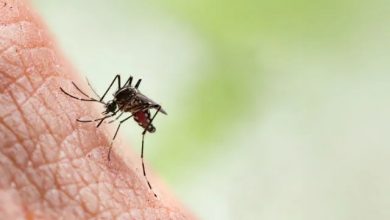Carrying a heavy heart for over a decade
Far from being babied and excessively pampered, one cannot deny the need for children to be escorted into adulthood; one cannot deny that life for every child should be as unencumbered as can be.
For children, life should be filled with moments – rich moments – which will serve as a well of memories, from which they can draw strength, and hope, and smiles, when adulthood appears with its gloved hands, landing punches, in unexpected places.
Unfortunately, for many children around the world, they contend with the brunt of more than a healthy dose of these punches, even before they reach adulthood.

Unfortunately, for many children around the world, they are left on their own in life’s darkness, to grope, and stumble, and fall, and bruise their way into adulthood.
One such child is Maame Yaa:
At 17, she has lived with elephantiasis since she was seven.
She has lived with the stigmatizing stares and glances of people since she was seven—an ordeal I have a firsthand feel of, from passersby with their looks of condescension, whenever I stop to say “hi” to her, and have a little conversation with her.
At 17, she has seen her fair share of how unfeeling and inhumane mankind can be with their words.
According to health reports, about 950 million people worldwide are at risk of Elephantiasis—the disease caused by filarial worms, and spread by female mosquitoes in 54 countries. These 54 countries include Ghana.
Also in a report by the World Health Organization, Elephantiasis is endemic to all the regions in Ghana, except the Ashanti and Volta Regions. Anybody could be affected—it could be me, it could be you, but today, it is her.
Living with her grandmother in Takoradi, Maame Yaa drags her grossly thickened and swollen left leg to town daily to beg for money to support herself and her grandma. She has been doing this since 2015.
Maame Yaa tells me she is saving part of the money to enable her undergo whatever medical procedure is needed, so she can put an end to the pain in her heart, and have something close to a normal life like other girls her age.

No true successful person beats his hand on his chest and says, “yes, I made it on my own.”
No true successful person reaches her destination and does not look back to show appreciation for all the assistance she had in various ways.
“We all got help from somewhere, somehow”- words from someone who gave me a hand, recently. There was always someone somewhere who bent down a little to enable us rise up a little.
Maame Yaa dreams of becoming an actress — a dream that keeps slipping from her reach as the days go by; a dream she was told cannot be achieved because of her condition.
To prove them wrong, with assistance from a philanthropist, she accepted to go back to school. However, Maame Yaa was denied admission due to her elephantiasis.
Perhaps, it is time we return the favour. Perhaps, it is time we bent a little to help someone up. Perhaps, it is time we be the reason a young girl looks back one day and feels heard, and feels loved, and feels grateful.
As I mentioned my intention to tell her story to the world and appeal for support on her behalf, she nodded and smiled—the kind of smile that says, ‘I’ve heard this before…’
She has clearly lost hope in man’s ability to be humane and compassionate. And why not? Years of unfulfilled promises have slowly eroded her confidence and belief in any human being to come to her aid.
A young girl should not be left alone to go through life’s darkness, groping unsuccessfully for hope.
Maame Yaa should certainly not be left alone to go through life carrying all of the pain and shame she bears in her heart every day, for the rest of her life.
A leg that weighs close to fifteen kilograms and a heart that bears more than a ton of pain and shame is certainly too heavy for a young girl to carry.
Written by Godwin Kpade
If you feel touched and would like to help, kindly call the front desk of Focus 1 Media on (+233)0312029318



